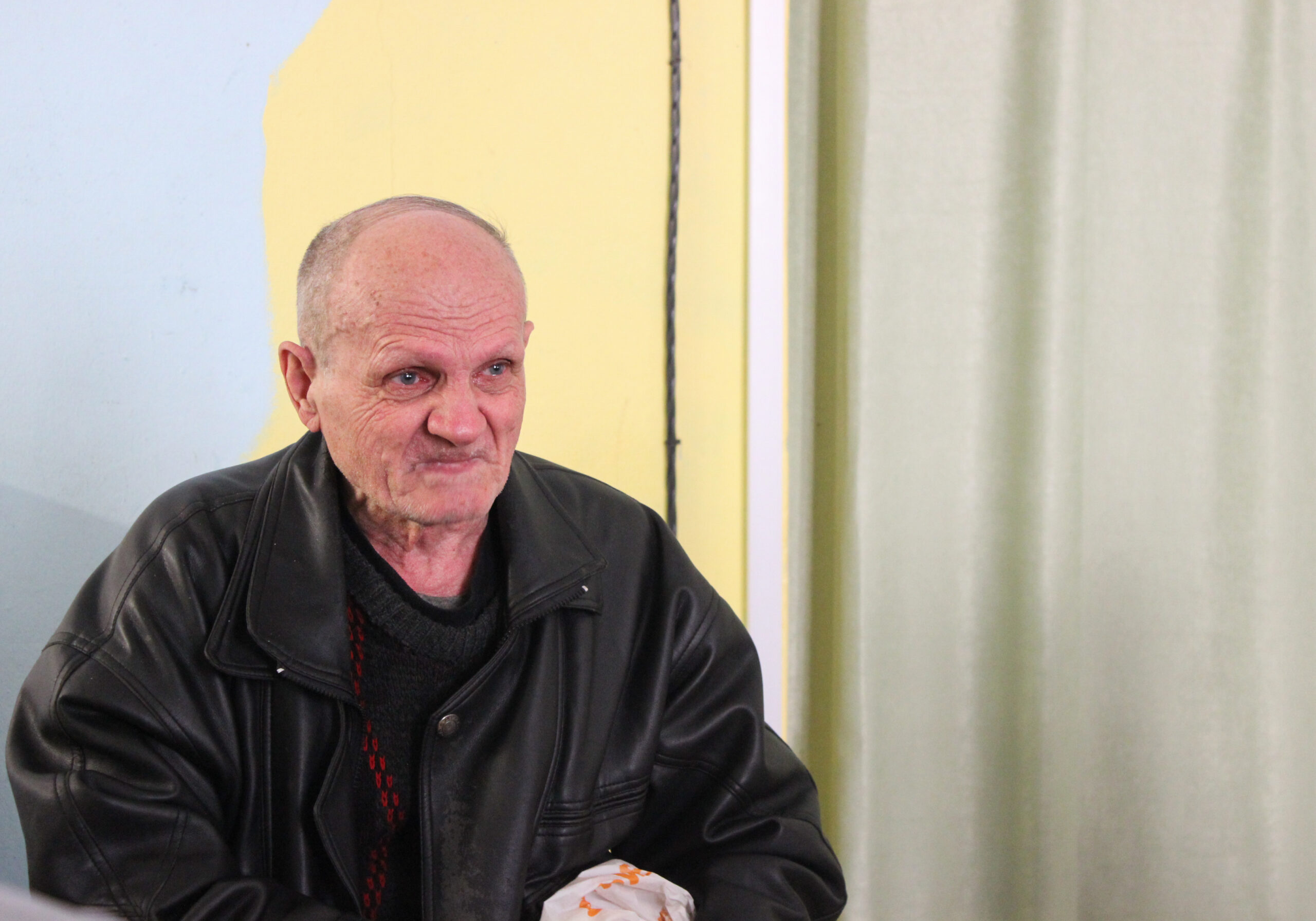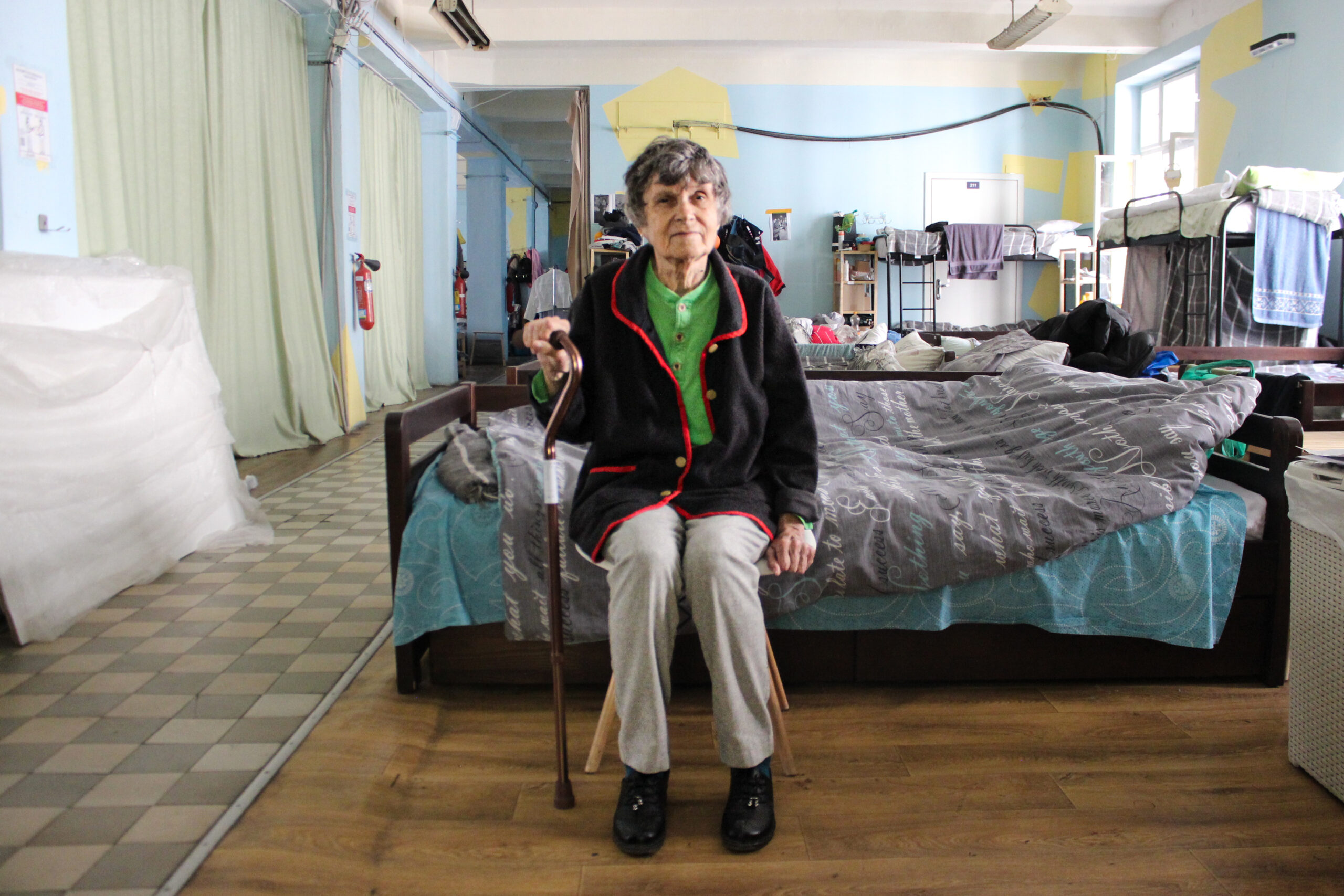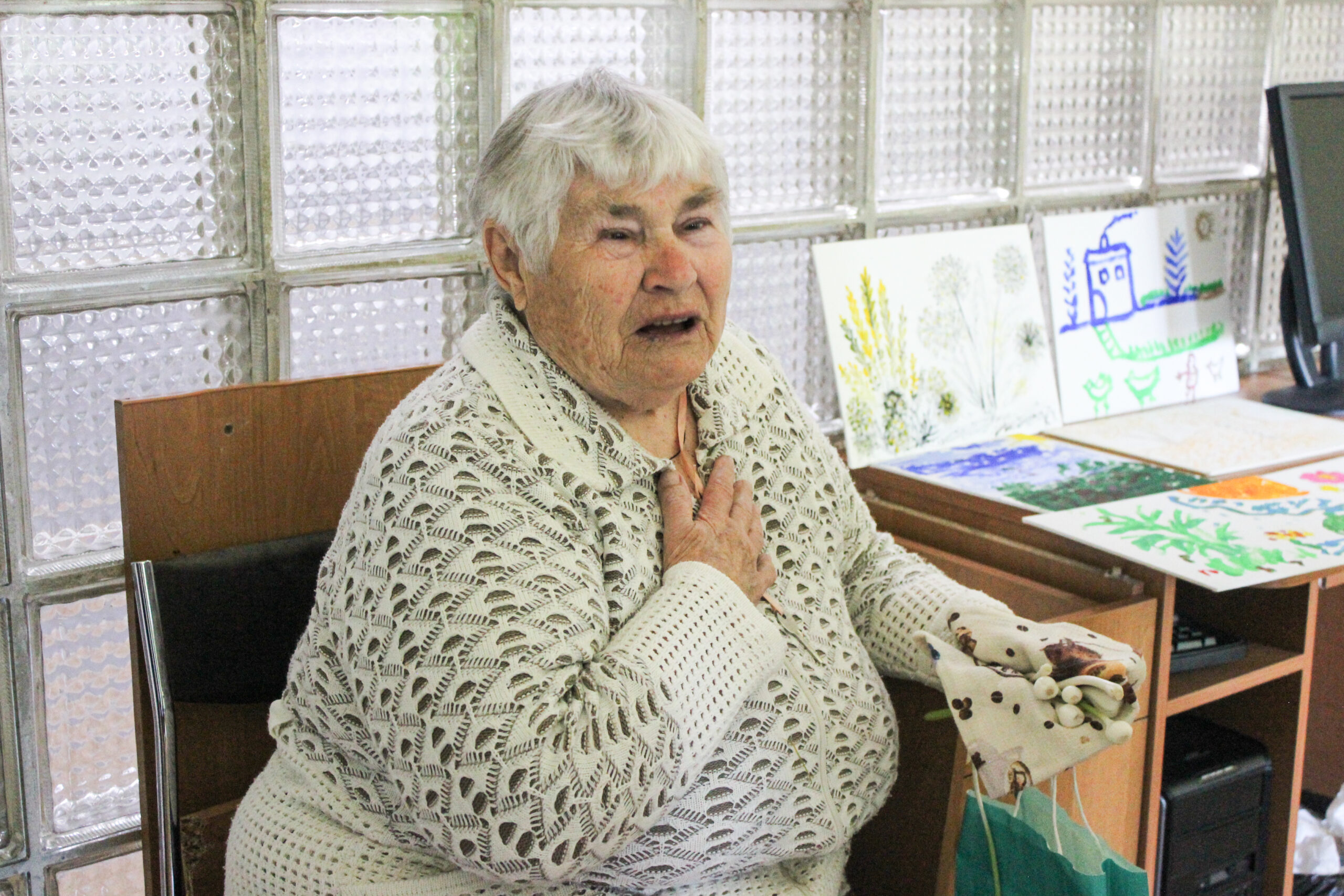Vasyl, 78

At 78, Vasyl, a former deputy director of a construction company, faces significant health and housing challenges exacerbated by the war. Having worked in construction since the age of 14, Vasyl’s long career has left him with serious health issues, including rheumatism, spinal and joint diseases, and prostate adenoma, leaving him with disabilities. Vasyl’s hope for sanatorium treatment to manage his conditions remains unmet due to financial constraints and bureaucratic hurdles. “I need sanatorium treatment, but I can’t afford it. Since the invasion, it’s been impossible to get the support I was once promised,” Vasyl explains, highlighting the difficulty of accessing necessary care.
Additionally, the war cost Vasyl his home, forcing him to live in a shelter – an especially harsh reality for someone in their late seventies. “It’s very hard to realise that you don’t have a home in your old age,” he says tearfully.
Through a project supported by the Canada-Ukraine Foundation and HelpAge Canada, HelpAge International was able to provide Vasyl with some assistance, supplying him with a hygiene kit and canes.
“It’s a bit of care and support in a life that’s been turned upside down.”
Lyubov, 83

At 83, Lyubov’s life has been marked by displacement and uncertainty since she was forced to flee her home in Sievierodonetsk at the onset of the full-scale invasion. She vividly recounts the harrowing journey: “When the war started, I fled because the city was occupied almost immediately. We travelled by train all night, stopping from time to time to wait out the shelling. I don’t even know if my house is still intact – I have no contact with my neighbours and friends who stayed there.”
Now living in the “Your Support” shelter in Lviv, Lyubov faces ongoing challenges due to her eyesight and mobility issues, compounded by her solitude and the constant influx of displaced people seeking refuge. Despite these difficulties, the assistance she received through the project funded by the Canada-Ukraine Foundation and HelpAge Canada – a hygiene kit and a cane – has provided her with essential support. Reflecting on this aid, Lyubov shared, “It was a small comfort, but it meant everything to me. It’s more than just items; it’s a reminder that I am not forgotten, that there is still support out there for people like me.”
Kateryna, 83

At 83, Kateryna has found solace and a semblance of normalcy in a geriatric institution in Lviv amid the turmoil brought by the war. Originally from the Luhansk region, where her hometown and house were destroyed, Kateryna’s journey to safety has been fraught with hardship. Reflecting on her new life in the institution, she shares her gratitude: “I thank God that I ended up here. It is good here. I have a place to live, a nice room, we were given bedding and clothes—everything is clean. Fresh air, hot water—everything is there. They feed us four times a day—and I keep remembering how I barely ate once a day when the war started.”
As part of the project, the institution where Kateryna resides is not just a shelter, but a community where emotional and social needs are nurtured. Within the project, local organization Ageing with Joy (Starist na Radist) has received a small grant to provide psycho-social support and engaging activities like art therapy, which includes drawing, modelling with clay, and knitting. These activities serve as therapeutic outlets for the residents, allowing them to express emotions and foster connections within their community. “And the girls, social workers, visit me all the time, we talk to them. It’s like my second family! And painting and other activities are a great support for us, where we can relax and forget about our troubles,” Kateryna explains.
This support extends beyond just meeting physical needs; it creates an environment that promotes mental well-being and social integration. Kateryna concludes with a sense of peace and belonging, “And most importantly, they don’t shoot here. There is no noise, no explosions, but the birds are singing. I feel safe here.” This testament not only underscores the critical support provided by the institution and the project funded by the Canada-Ukraine Foundation, but also illustrates the profound difference it makes in the lives of those like Kateryna who have been displaced by war.
